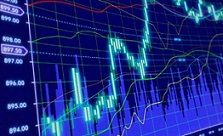The Cheapest CFD Broker
Who Is The Cheapest CFD Broker To Trade With?
Looking for a low-cost CFD broker but not sure where to start your search? You have come to the right place!

There are plenty of CFD brokers to choose from and many will claim to be the cheapest broker available. Statements such as “the world’s tightest spreads”, “spreads from 0 pips” or “$0 commission” are all too common.
When they all claim to offer these amazing, low prices, it can make choosing an actual low-cost broker a very difficult decision!
To solve the problem, we have listed some low-cost brokers below and compared their spread costs across a number of popular markets. This will reveal who the cheapest CFD broker is – let the trading cost comparison begin!
| Australia 200 | 0.9pt (Fixed*) | 1pt (Fixed) | 1pt (Fixed) | 2pts (Avg.**) |
|---|---|---|---|---|
| Wall St 30 | 1pt (Fixed) | 1.6pts (Fixed) | 3.16pts (Fixed) | 4pts (Avg.) |
| German 30 | 1pt (Fixed) | 1pt (Fixed) | 1pt (Fixed) | 2pts (Avg.) |
| UK100 | 1pt (Fixed) | 1pt (Fixed) | 1pt (Fixed) | 2pts (Avg.) |
| Japan 225 | 8pts (Fixed) | 8pts (Fixed) | 8pts (Fixed) | 10pts (Avg.) |
| ASX 200 Commission | $5 or 0.07% | $5 or 0.08% | Not Available | $10 or 0.10% |
| AUD/USD | 0.6 pips (Fixed) | 0.73 pips (Avg.) | From 1 pip | 0.66 pips (Avg.) |
| EUR/USD | 0.6 pips (Fixed) | 0.69 pips (Avg.) | From 1 pip | From 1.1pips |
| AUD/JPY | 2 pips (Fixed) | 2.1 pips (Avg.) | From 1 pip | From 1.1 pip |
| GBP/USD | 1.8 pips (Fixed) | 2.1 pips (Avg.) | From 1.1 pips | From 1.1 pips |
| Spot Gold | 3pts (Fixed) | 3pts (Variable) | 1.02pts (Avg.) | 2.7pts (Avg.) |
| Spot Silver | 3pts (Fixed) | 2pts (Fixed) | 7pts (Avg.) | 1.9pts (Avg.) |
| Brent Crude Oil | 3pts (Fixed) | 5pts (Fixed) | 7pts (Avg.) | N/A |
| Bitcoin | 40pts (Fixed) | From 40pts | From 10pts | N/A |
| Next Steps | Review Open Account | Review Open Account | Review Open Account | Review Open Account |
- Fixed vs. Variable spreads – the difference is very important, more on this below.
- “Avg.” = the average spread, i.e. the spread you will usually receive when you trade with that broker.
- “From” = the lowest that spread will ever be (i.e. unlikely you’ll ever get it that low)
All figures highlighted in the table can be found on the websites of respective brokers (as at 31 October 2022).
You can see in the table above that TD365.com regularly beat competitors when it comes to spreads, and for that reason they are our winner, with City Index a close second.
TD365.com also have a simple, fast and easy-to-use trading platform, which is perfect for both beginners and experts looking for a lower cost trading option. They also have an excellent mobile trading app, are regulated in the Bahamas, and are owned & operated by an ex-professional trader.
- Spreads
Find out how much spread a broker charges, i.e. are they wide spreads or tight spreads? Fixed or variable?
Most CFD brokers will only charge a commission fee on share trades but always ask before you open an account.
- Overnight Financing
Most brokers will charge you a small fee if you leave your trade/s open overnight, again this is a given, but ask how much they charge and get some examples from the broker.
- Inactivity Fee
Strangely, some brokers will charge you an “inactivity fee” if you don’t trade with them after 3 or 6 months. Check if your broker of choice will charge you this ridiculous fee before opening an account with them.
Tip 1 – Trade with a transparent broker
Always trade with a broker that is honest, clear and upfront about their trading costs. Avoid brokers that cannot tell you quickly & simply how much they charge you to trade with them. Always ask for examples too so you’re clear.
Tip 2 – If it sounds too good to be true…
Does your broker claim things such as “Spreads from 0.1 pips”, “Trade from as low as 0.2pts” or “Commission-free trading“? Claiming they offer the cheapest spreads in the industry is great but will you ever get spreads that low…. Very unlikely!
When looking to choose a CFD broker, there are many considerations; trading platform, trading costs, execution speed, regulation, segregation of funds, customer support etc. but one of the most important factors that is often overlooked is that of spread.
The spread is the difference between the BID & OFFER price (the BUY and SELL price) – i.e. if the Wall St 30 index is trading at 28,000 – 28,001, the spread is 1 point. The tighter the spread, the cheaper it is to trade; the wider the spread, the more you are being charged. Brokers always charge spread when you trade, this is a given. However, there are two types of spread – Fixed and Variable – and they differ significantly.
Fixed Spreads
Fixed spreads remain constant (i.e. they do not change) throughout the day regardless of market conditions. This means you’ll know how much you’re being charged for every trade, even when the markets are volatile.
Variable Spreads
Variable spreads do not remain constant which means they will change throughout the trading day, depending on market conditions. There are times when variable spreads might be cheaper than fixed spreads (usually in calmer market conditions) but they will widen when there is market volatility. They are, therefore, more of an unknown quantity.


